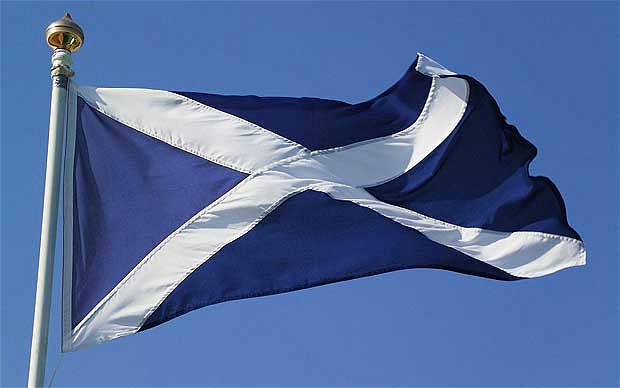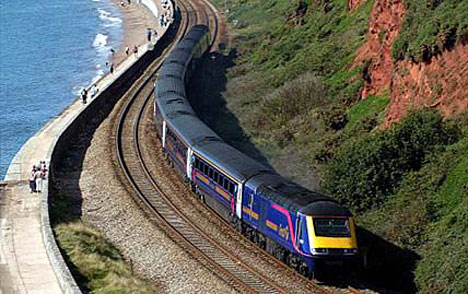When two politicians debate the role of government, it is almost always Democrat vs. Republican. Which is why it was so refreshing and instructive to read of the debate taking place among Republicans in a small city in southeastern Kentucky.
On July 19, after years of complaints about local gasoline prices being higher than those in surrounding communities, the City of Somerset decided to take matters into its own hands and began selling gasoline directly to the public. Two term State Senator Chris Girdler immediately declared, “socialism is alive and well in Somerset.” Two term Mayor Eddie Girdler, a distant cousin responded, “If government doesn’t do it to protect the public, then who does it?”
In an interview State Senator Girdler, paraphrasing Ronald Reagan’s famous dictum insisted, “the government is not the answer – government’s the problem.” Regrettably the interviewer did not remind the readers that government laid the very foundation of Somerset’s economy. In 1950 the Army Corps of Engineers completed construction of one of the largest man-made lakes in the world. A little over 100 miles in length with an average depth of 85 feet, Lake Cumberland “transformed Somerset from a sleepy rural community into one of the largest recreation centers in Kentucky, drawing more than 1.7 million visitors annually.” It would have been instructive to discover whether Senator Girdler would describe Lake Cumberland as a “socialist enterprise.”
Girdler wants to protect us from big government. Senator Girdler approvingly cites Ronald Reagan’s famous dictum, “You can’t be for big government, big taxes and big bureaucracy and still be for the little guy.” Mayor Girdler wants to protect us from the predations big giant corporation and he views government as a proper vehicle for doing so. “It’s the role of government to protect us from big business,” he maintains.
Somerset’s foray into retail gasoline sales is not the first time it has used its collective authority on behalf of the little guy. In 1951 the city established a municipally owned natural gas company. In the mid 1970s, regular natural gas shortages spurred this city of 11,000 to borrow $4.5 million from Farmers Home Administration to build a natural gas pipeline to previously landlocked producers in eastern Kentucky as well as a pipeline westward to a Texas Eastern Transmission terminal. Today Somerset owns and operates 155 miles of pipelines that connect to three major national natural gas transmission companies. It purchases natural gas directly from more than a dozen producers while also transporting producers’ gas to more distant markets.
In 2011 Somerset opened a natural gas stripping plant to upgrade the quality and monetary value of the natural gas. In 2012 it began converting its public vehicle fleets to compressed natural gas, a conversion that by now is almost complete and became the first in Kentucky to sell natural gas to privately owned vehicles.
In 2010 storage capacity for 100,000 gallons of gasoline and diesel became available at a bargain price. Entrepreneurial Somerset quickly snapped it up, gaining the ability to control costs by purchasing gasoline when prices are low. Mayor Girdler estimates the city recouped its investment within two years and has been sharing the savings with 11 other public entities as well as Somerset’s independent schools.
The retail gasoline station comes after years of resident complaints about the high price of gasoline in Somerset compared to the surrounding area. In 2011 the city extended an open invitation from city to local gasoline state business owners to explain why that is so. All declined to attend.
In June, after two years of public debate, the city council voted 10-0 to authorize the city to sell gasoline. “We couldn’t get anywhere, and we decided that hey, we might as well take a stand in a small way of saying that we’re tired of it…and it is working”, says Mayor Girdler.
Somerset’s new public gasoline fuel center is consciously designed not to drive local gas stations out of business. It sells only regular gasoline, has no convenience store and doesn’t advertise. Its goal from day one has been to make the local price of gasoline competitive with the regional price. In fact, the price of gasoline at the Somerset Fuel Center is set at the average regional gasoline price. So far the venture appears to be accomplishing its objective. The day the public gas station opened prices in Somerset dropped to or below those in surrounding communities.
Ultimately, Somerset is not targeting local gas stations but rather global Marathon Oil. As Mayor Girdler explains, “We are one community that decided we’ve got backbone and we’re not going to allow the oil companies to dictate to us what we can and cannot do.”
Marathon’s acquisition of Ashland Oil in 1998 virtually eliminated the competitive gasoline market in much of Kentucky. After an investigation of price gouging the Kentucky Attorney General’s office noted, “It doesn’t matter if you’re at Chevron. It doesn’t matter if you’re at Thornton’s or Shell or Speedway. It is all Marathon Oil.” Marathon sets the wholesale price and varies the price depending on how much it can get from the local market.
For decades Marathon had a wee bit of competition in the Somerset market from a small local refinery. But the Somerset Refinery declared bankruptcy in 2008. In 2009 it reopened under new ownership. The new owners should have found a ready supply of crude oil from local small oil producers eager to save $5-6 per barrel by transporting to Somerset rather than to Marathon’s more remote refinery. But Marathon began offering handsome incentives to trucker brokers who would go 172 miles northeast of Somerset to deliver to its refinery in Catlettsburg.
On December 15, 2009 the CEO of Somerset Energy Refining wrote an open letter to Marathon pleading with its CEO to cease this anti-competitive practice. Marathon refused. In early 2010 Somerset Refinery’s biggest supplier diverted to Marathon. The company declared bankruptcy. “We simply weren’t able to buy enough crude oil to process to keep our doors open,” said Ed Phelps, spokesman for the company.
In 2011 the local refinery reopened once again under new management, this time with a new name, Continental Refining Company (CRC). CRC’s refinery is 2 percent the size of Marathon’s but the new owners have long experience in the oil and gasoline business and deeper pockets than the previous owners. So far it seems to be faring well and has played a key role in allowing Somerset to set up a competing gas station.
Mayor Girdler is up for reelection this November. Whatever happens, a tip of the hat to Somerset, Kentucky for making concrete the sometimes abstract and always ideological debate about the role of government and the value of collective action.





